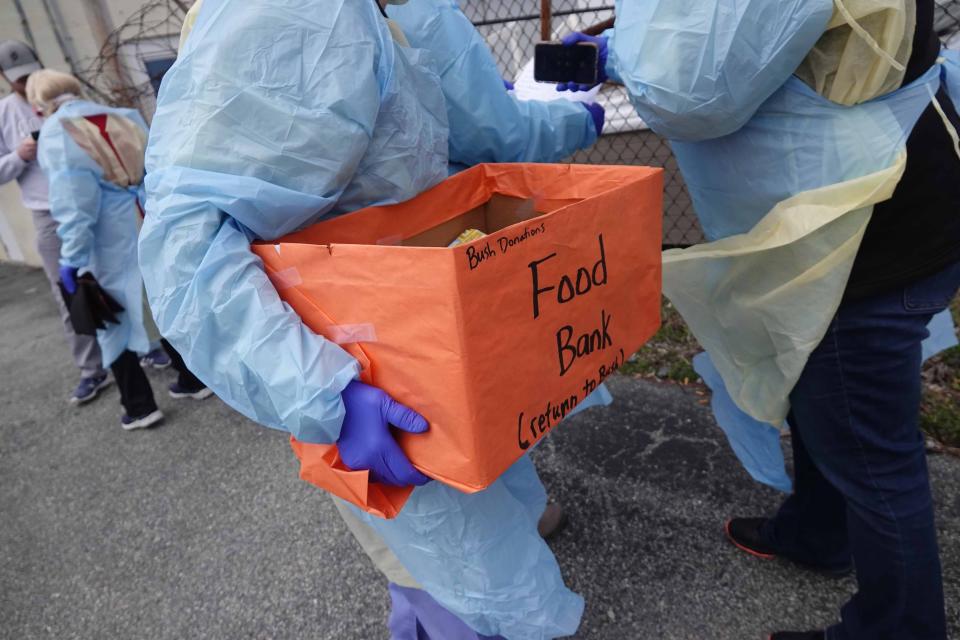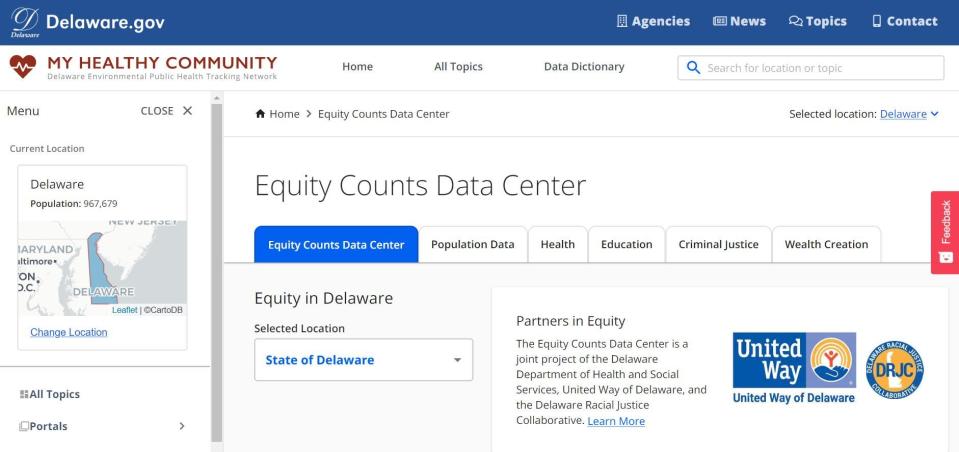From cancer rates to housing instability, what this new database tells us about Delaware
A new online database promises to make obtaining data about Delaware's differing populations easier — and offers a more acute look into the disparities between them.
A collaboration between the United Way of Delaware, the Delaware Racial Justice Collaborative and the Division of Public Health, the Equity Counts Data Center is intended to provide a convenient one-stop shop for researchers, organizations and communities interested in addressing "institutional and historical barriers that impact Delawareans’ wellbeing and opportunities."
The Equity Counts Data Center database, which was unveiled last week and can be accessed through the Division of Public Health's My Healthy Community website, offers visitors the opportunity to obtain state and federal data relating to Delaware's population, as well as information on health, education, wealth creation and criminal justice.

These include data points like:
Students who have been stopped by the police in the past year in Delaware
Cancer rates throughout Delaware
Students who experienced housing instability in the past 30 days in the state of Delaware
The four-year graduation rate for school districts
Rent burden throughout Delaware
FAMILIES DRIVE INCREASE IN HOMELESS:Delaware cities have tools, ability to fight housing crisis. Why aren't they using them?
What might be most notable about this data library is that beyond featuring data about Delaware and its population demographics, certain datasets allow users to make comparisons between communities by race, ethnicity, gender and age, on various levels of granularity, making it easier for a researcher to examine inequities.
These filtering options include:
State
Counties
Cities
ZIP codes
State Senate districts
State House districts
Census tracts
Neighborhoods
Census block groups

Good data can be hard to come by in a small state
Good quality data is difficult to attain with small sample sizes — and populations. That's because there's a higher chance that outliers may be included and end up skewing results. Similarly, some data is not shown unless there is enough to be considered "fully anonymous," which can make information appear incomplete.
FOR SUBSCRIBERS:Why it's difficult to track how RSV is impacting Delaware and what that means for winter
In addition to Delaware's small size, its provincial culture also frustrates many working in the social, community and public health fields. Simply because many researchers and organizations do not readily share the data they have assembled.
Considering Delaware has the second-highest drug overdose death rate in the country, an exploding homeless population and the current fiasco state officials have admitted to regarding lead testing in schools, availing change-makers with data is the first step to making effective changes.

Seeing where the problems are is not enough. Researchers and community groups are hoping that the information gleaned from the Equity Counts Data Center will be the roadmap to employing policies and programs that will drive improvement.
"Far too often, we want to create change, but we don’t have the baseline data to show why this work really matters,” said Michelle A. Taylor, United Way of Delaware president and CEO in a prepared statement.
She described the Equity Counts Data Center as a "game-changer for Delawareans."
In today's society, solutions, success and innovation are driven by data. According to the My Healthy Community website, which also houses the COVID-19 tracker and other public health information, the collaborative goal is to present "actionable community intelligence" to ultimately improve the delivery of public health strategies down to the very neighborhoods most in need.
Contact reporter Anitra Johnson at 302-379-5786 or ajohnson@delawareonline.com with tips and story ideas. Become a subscriber to access more stories and the best in local reporting
This article originally appeared on Delaware News Journal: Delaware's Equity Counts Data Center aims to visualize disparities

